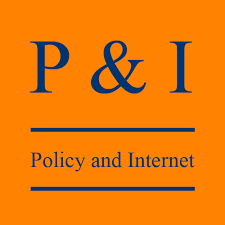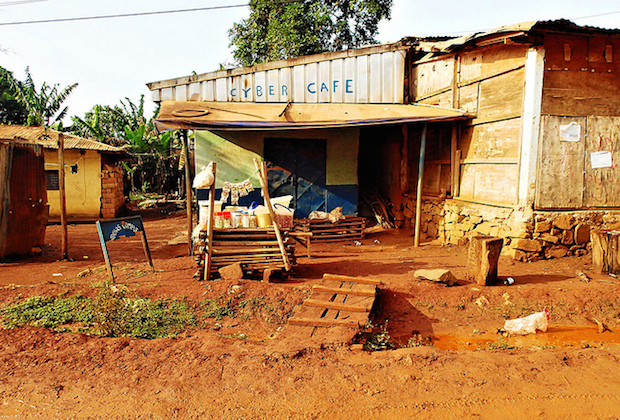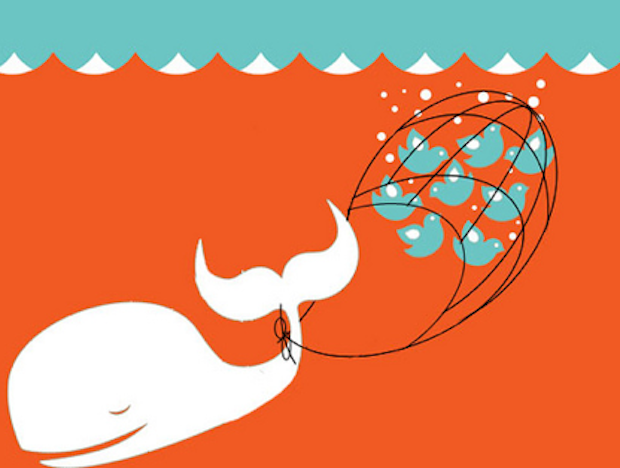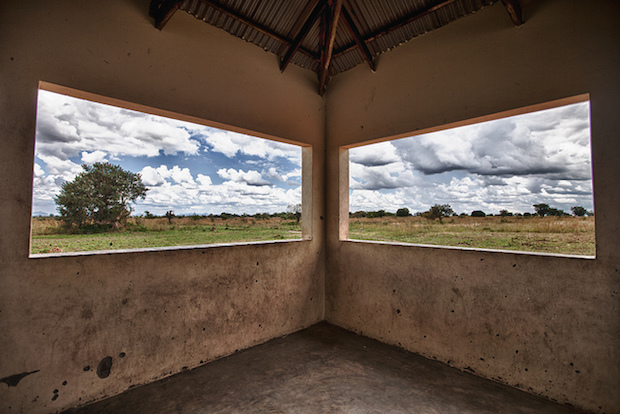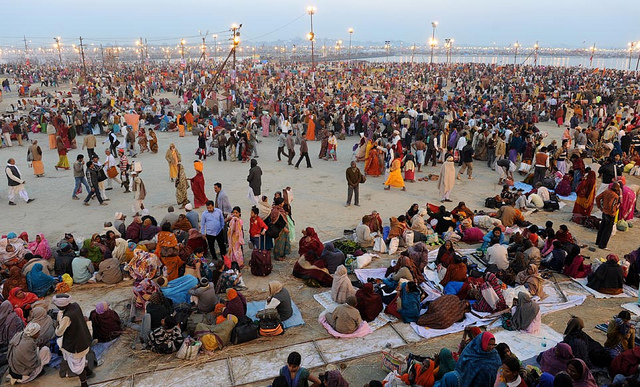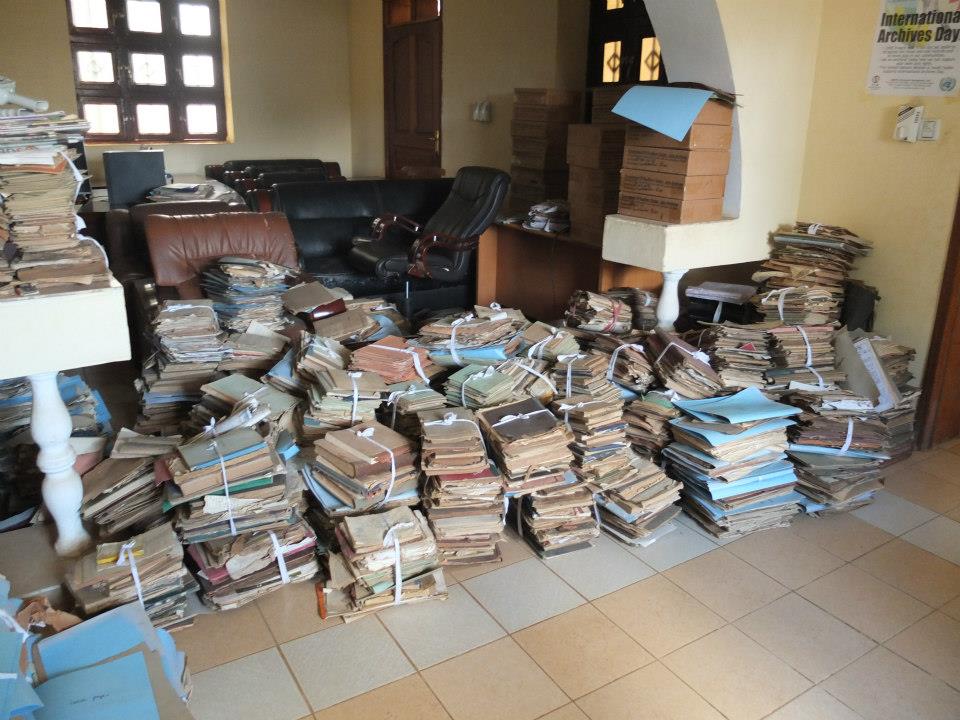
As Linnet Taylor’s recent post on this blog has argued, researchers are gaining interest in Africa’s big data. Linnet’s excellent post focused on what the profusion of big data might mean for privacy concerns and frameworks for managing personal data. My own research focuses on the implications of big (and open) data on knowledge about Africa; specifically, economic knowledge.
As an introduction, it might be helpful to reflect on the French colonial concepts of l’Afrique utile and l’Afrique inutile (concepts most recently re-invoked by William Reno in 1999 and James Ferguson in 2005). L’Afrique utile, or usable Africa represented parts of Africa over which private actors felt they could exercise a degree of governance and control, and therefore extract profit. L’Afrique inutile, on the other hand, was the no-go area: places deemed too risky, too opaque and too wild for commercial profit. Until recently, it was difficult to convince multinationals to view Africa as usable and profitable because much economic activity took place in the unaccounted informal economy. With the exception of a few oil, gas and mineral installations and some export commodities like cocoa, cotton, tobacco, rubber, coffee, and tea, multinationals stayed out of the continent. Likewise, within the accounts of national public policy-making institutions, it was only the very narrow formal and recordable parts of the economy that were recorded. In a similar way that economists have traditionally excluded unpaid domestic labour from national accounts, most African states only scratched the surface of their populations’ true economic lives.
The mobile phone has undoubtedly changed the way private companies and public bodies view African economies. Firstly, the mobile phone has demonstrated that Africans can be voracious consumers at the bottom of the pyramid (paving the way for the distribution of other low-cost items such as soap, sanitary pads, soft drinks, etc.). While the colonial scramble for Africa focused on what lay in Africa’s lands and landscapes, the new scramble is focused on its people and markets (and workers; as the growing interest in business process outsourcing demonstrates).
Secondly, mobile phones (and other kinds of information and communication technologies) have created new channels of information about Africans and African markets, particularly in the informal sector. In an era where so much of the apparatus for measuring Africa’s economies has been weakened, this kind of data reaps enormous potential. One might say that the mobile phone and the internet have made former parts of l’Afrique inutile into l’Afrique utile — open for business, profit, analysis, and perhaps, control.
The ‘scramble for Africa’s data‘ is taking place within a particular historical trajectory of knowledge production. Africa has always been a laboratory for Western scientists and researchers, with local knowledge production often influenced by foreign powers and foreign ideas (think back to the early reliance on primary products for export, to which the entire colonial system of economic measurement and development planning was geared). Within the contemporary context of ever-expanding higher education and dwindling finances for local research, African academics and researchers have been forced to take on more and more consultancies and private contracts.
This ‘extraversion’ of African institutions of higher education has contributed to a re-orientation of the apparatus for academic research towards questions posed from outside. Within state bodies, similar processes are underway. Weakened by corruption, Structural Adjustment Policies (SAP), and pervasive informal economic activity, management of the economy has migrated from state institutions into the better paid offices of NGOs, consultancies and private companies. State capacity to measure and model is presently very weak, and African governments are therefore being encouraged to ‘open’ up their own records to non-state researchers. It is into this research context that big data emerges as a new source of ‘legibility’.
ICTs offer obvious benefits to economic researchers. They have often been heralded as offering potentially more democratic and participatory kinds of ‘legibility’. Their potential partly lies in the way that ICTs activate ‘social networks’ into infrastructures through which external actors can deliver and extract information. This ‘sociability’ makes them particularly suitable for studying informal economic networks. ICTs also offer the potential to modernise existing streams of data collection and broaden intra-institutional coordination, leading to better collaboration and more targeted public policy. In our project on the economic impacts of fibre optic broadband in East Africa, we have seen how institutions such as the Kenya Tea Board and the Rwandan Health Ministry are better integrating their information systems in order to gain a better national picture, and thereby contribute to industrial upgrading in the case of tea or better public services in the case of health. Nevertheless, big data is not accessible to all, and researchers must often prove commercial or strategic value in order to gain access.
Use of ‘big data’ is still a growing field, born within the discipline of computer science. My initial interviews with big data researchers working on Africa indicate they are still figuring out what kinds of questions can be answered with big data and how they might justify themselves and their methodologies to mainstream economics. Big data’s potential for hypothesis-building is somewhat at odds with the tradition of hypothesis-testing in economics. Big data researchers start with the question, ‘Where can this data lead me?’ There is also the question of how restricted access might frame research design. To date, the researchers that have been most successful in gaining access to African big data have worked with private companies, banks and financial institutions. It is therefore the incorporation and integration of poor people into private sector understandings that big data currently seems to offer.
This vision of development fits into a broader trend. Just as Hernando de Soto has argued that development is hampered by the exclusion of poor people from formalised property rights, proponents of microcredit have likewise argued it is the poor’s exclusion from financial institutions that limit their ability to develop self-sustaining enterprises. Researchers are therefore encouraged to use big data to model poor peoples’ actions and credit worthiness to incorporate them into financial systems, thereby transforming them from invisible selves into visible selves.
Critics of microfinance have cautioned that incorporating poor people into globalised structures of finance makes them more vulnerable to state interference in the form of taxes and to debt and international financial crises. It is also unclear what the drift into the private sector might do to wider understandings of poverty. While national measures situate citizens as members of national or collective groups, mobile financial innovations often focus on the individual’s financial records and credit worthiness. It remains to be seen whether this change of focus might move us away from more social definitions for poverty towards more individual or private explanations.
Likewise the flow of digital information across geographical space has the potential to change the nature of collaboration. As Mahmoud Mamdani has cautioned, “The global market tends to relegate Africa to providing raw material (“data”) to outside academics who process it and then re-export their theories back to Africa. Research proposals are increasingly descriptive accounts of data collection and the methods used to collate data, collaboration is reduced to assistance, and there is a general impoverishment of theory and debate”. This problem could potentially be exacerbated by open data initiatives that seek to get more people using publicly collected data. As Morten Jerven writes in his recent book, Poor Numbers, interactions between African data producers and users are currently limited, with users often unable to effectively assess the source and methods used to collect the original data. Nevertheless, such numbers are often taken at face value, with dubious policy recommendations formed as a result. While multiple sources of data (from the public and private sector) can help increase the precision of research and lead to better conclusions, we do not understand how big data (and open data) will impact the overall research environment in Africa.
My next project will examine these issues in relation to economic studies of unemployment in Egypt and financial inclusion in Uganda. The key objectives will be to improve our understanding of how data is being collected, how data is being communicated across groups and within systems, how new models of the economy are being formed, and what these changes are doing to political and economic relationships on the ground. Specifically, the project poses six interrelated questions: Where is economic intelligence and expertise currently located? What is being measured by whom, and how, and why? How do different tools of measurement change the way researchers understand economic truth and construct their models? How does more ‘legibility’ over African economies change power relations? What resistance or critical thinking exists within these new configurations of expertise? How can we combine approaches to assemble a fuller picture of economic understanding? The project will emphasise how economics, as a discipline, does not merely measure external reality, but helps to shape and influence that reality.
How we measure economies matters, particularly in the context of ever increasing evidence-based policy-making and with increasing interest from the private sector in Africa. Measurement often changes and shapes our realities of the external world. As Timothy Mitchell writes: “the practices that form the economy operate, in part, to establish equivalences, contain circulations, identify social actors or agents, make quantities and performances measurable, and designate relations of control and command”. In other words, researchers cannot make sense of an economy without first establishing a research infrastructure through which subjects are measured and incorporated. The particular shape, tools and technologies of that research infrastructure help frame and construct economic models and truth.
Such frames also have political implications, as control over information often strengthens one group over others. Indeed, as James C. Scott’s work Seeing Like a State has shown, the struggle to establish legibility over societies is inherently political. Elites have always attempted to standardise and regularise more marginal groups in an effort to draw them into dominant political and economic orders. However, legibility does not have be ‘top-down’. Weaker groups suffer most from illegible societies, and can benefit from more legibility. As information and trust become more deeply embedded within stronger ties and within transnational networks of skill and expertise, marginalised ‘out groups’ are particularly disadvantaged.
While James C. Scott’s work highlighted the dangers of a high modernist ‘legibility’, the very absence of legibility can also disempower marginal groups. It is the kind of legibility at stake that is important. While big data offers enormous potential for economists to better understand what is going on in Africa’s informal economies, economic sociologists, anthropologists and historians must remind them how our tools and measurements influence systems of knowledge production and change our understandings and beliefs about the external world. Africa might be becoming ‘more usable’ and ‘more legible,’ but we need to ask, for whom, by whom, and for what purpose?
Dr Laura Mann is a Postdoctoral Researcher at the Oxford Internet Institute, University of Oxford. Her research focuses on the political economy of markets and value chains in Africa. Her current research examines the effects of broadband internet on the tea, tourism and outsourcing value chains of Kenya and Rwanda. From January 2014 she will be based at the African Studies Centre at Leiden University. Read Laura’s blog.
